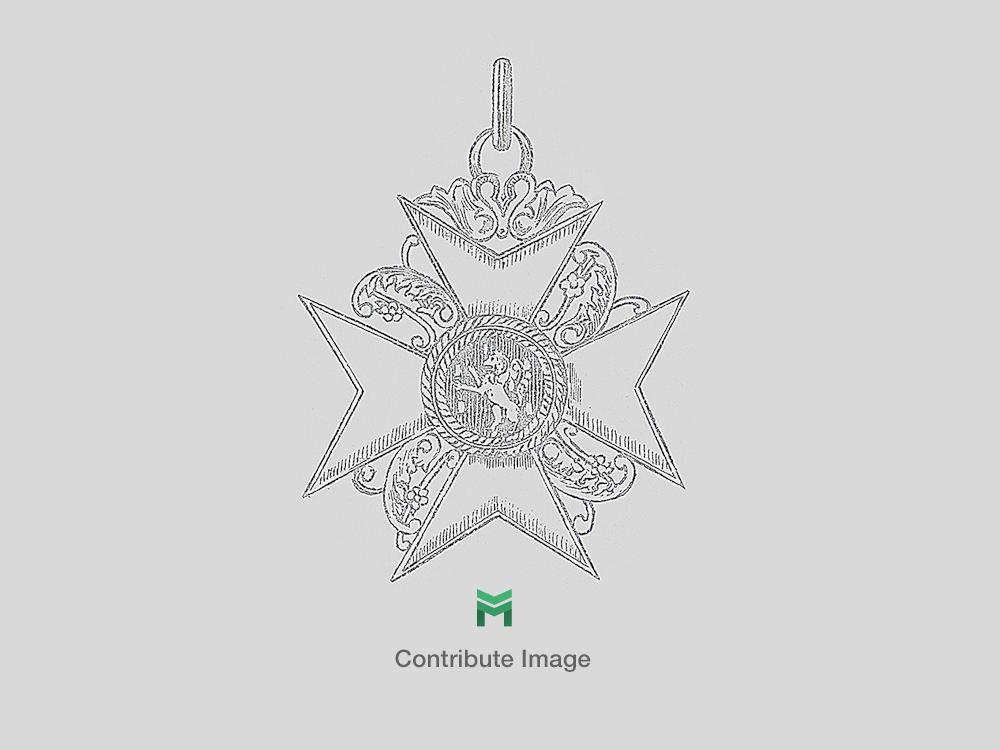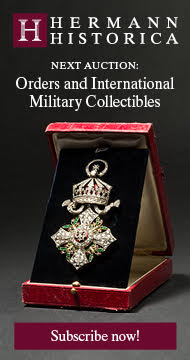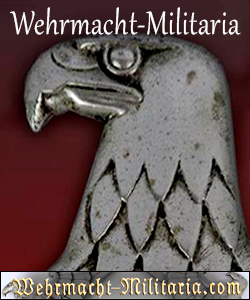Reichsbahn Pre-1935 Pattern Pay Groups 7a&7 Collar Tabs
CATEGORY: Version
SKU: 72.GOR.03.02.02.01.01.004.000
Estimated market value:

Estimated market value:
The Deutsche Reichsbahn (German National Railway) was created after the First World War in 1920 by combining the formerly independent state railways of the abolished German Empire into a national organisation. Under NSDAP rule, the German state railway system was reorganised in the 1930s to better meet the needs of the economy and to prepare for war, eventually supplying the front lines with soldiers and supplies. The Reichsbahn also had an infamous role to play in the Holocaust, transporting Jews and other “undesirables” to concentration and extermination camps.
The Bahnschutzpolizei (railway protection police) was founded in 1939 as a merger of the Bahnpolizei (railway police) and the Reichsbahnschutz (railway protection force), the latter being regular railway employees that, beyond their normal functions, additionally served as railway security personnel.
The Bahnschutzpolizei as a railway sub-organisation was made up of policemen that were employed by the Reichsbahn rather than the German police force. Their task was to ensure railway safety as well as preventing railway-related espionage and sabotage. During the war, most members of the Bahnschutzpolizei served in the occupied Eastern European territories.
Collar tabs initially remained unchanged from the time of the Weimar Republic, first introduced in May of 1924. Pairs consisted of two mirrored but otherwise identical collar tabs. They are in the form of parallelograms, measuring 85x40mm, although sizes could vary considerably. They feature a black background and red piping.
All collar tabs but those for the very lowest rank featured one or more cyphers to indicate the wearer’s rank (on the inner side) and sometimes trade/specialty function (on the outer side). All these cyphers were gold-coloured.
If used, rank pips were made of metal and are in the form of four-sided stars. Chevrons were embroidered.
Collar tabs were as follows:
Pay group 5 collar tabs feature two oak leaves, one above the other.
Pay group 6 collar tabs feature one oak leaf above two pips.
Pay group 7 collar tabs feature one oak leaf above one pip.
Pay groups 7a&7 collar tabs feature one oak leaf.
Pay groups 9a-7a collar tabs feature three pips, one above two.
Pay groups 13-10 collar tabs feature two pips, one above the other.
Pay groups 16-12 collar tabs feature one pip.
Pay groups 17-15 collar tabs feature two chevrons, one inside the other. The outer chevron measures 8mm while the inner chevron measures 5mm.
Pay groups 17a-16 collar tabs feature one 8mm chevron.
Pay group 17a collar tabs feature one 5mm chevron.
Auxiliary Official (Hilfsbeamter) collar tabs don’t feature any cyphers.
The oak leaf cyphers for the higher ranks were available in three forms: hand-embroidered, made of metal with pins on the reverse, and made of metal with small holes for sewing to the tabs.
The trade/specialty cyphers are as follows:
Cyphers for wagon wardens (Wagenmeister) are in the form of a railway wagon.
Cyphers for railcar drivers (Triebwagenführer) are in the form of a wheel with a wing attached to one side and three bolts of lighting attached to the other side.
Cyphers for inspectors (Inspekteure) are in the form of a spoked wheel interlocked with a compass.
Cyphers for machinists (Maschinisten) are in the form of a spoked wheel with cogs and three bolts of lightning attached to one side.
Cyphers for leaders of small units (Rottenführer) are in the form of a horizontal line with an elevation in the centre, twice diagonally met by a second line forming a right angle at the bottom.
Cyphers for shunters (Rangierer) are in the form of a spoked wheel with the letter “R” superimposed on it.
Cyphers for conductors (Schaffner/Zugführer) are in the form of a wheel shown in profile view with a wing attached to one side.
Cyphers for overhead wire controllers (Leitungsaufseher) are in the form of two crossed and upwards pointing bolts of lightning.
Cyphers for stokers (Heizer) are in the form of a railway engine car.

Comments
Sign in to comment and reply.


Scroll Top